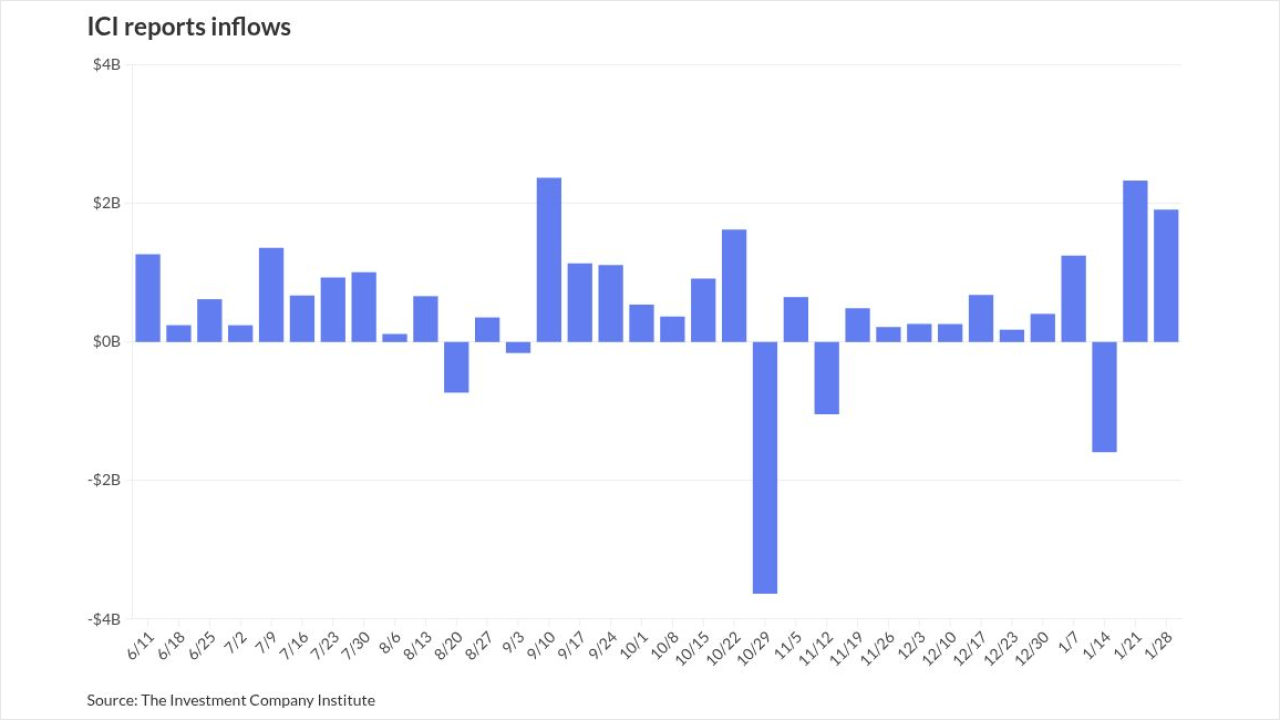A Georgia public power agency said investors oversubscribed by more than two times a bond issue to help finance its ownership in two nuclear reactors amid litigation with the Florida municipal electric authority responsible for the debt.
MEAG Power, also known as the Municipal Electric Authority of Georgia, closed on the limited offering of tax-exempt serial and term bonds Friday that raised $619 million, including $48.14 million in premiums, to finance a portion of the reactors’ cost related to its Project J contract.

The contract debt will be paid through a power purchase agreement between MEAG and northeast Florida’s JEA, formerly the Jacksonville Electric Authority. JEA and the city have filed a lawsuit challenging the legality of the agreement.
Bank of America Merrill Lynch was the sole underwriter on the deal. PFM Financial Advisors LLC is advising MEAG. Orrick, Herrington & Sutcliffe LLP is bond counsel. King & Spaulding counseled the underwriter.
The unrated 40-year bond issue, sold in the par amount of $571 million, was purchased by sophisticated institutional buyers familiar with the legal dispute between the two public power agencies, according to Edward E. Easterlin, MEAG’s senior vice president and chief financial officer.
“We thought given the complexity of this situation we’d take this route with investors who knew the situation best rather than have a full open [bond] market process,” Easterlin said, referring to the limited offering. “We had a lot of interest.”
The bond proceeds, he said, are expected to conclude Project J, one of three special financing vehicles funding a portion of MEAG’s 22.7% ownership interest in the reactors under construction at the Alvin W. Vogtle Electric Generating Plant near Waynesboro, Georgia.
Under the structure of the limited offering, the bonds are exempt from Securities and Exchange Commission Rule 15c2-12, excluding it from continuing disclosure requirements, according to the limited public offering statement posted on the Municipal Securities Rulemaking Board’s EMMA filing system.
JEA didn’t respond to a request for comment about Friday’s deal. The Florida utility, along with the city, have said that the 20-year power purchase agreement was improperly approved and should be vacated, although recent federal court rulings have underscored the strength of the contract.
Easterlin acknowledged that while litigation is still being pursued, settlement discussions are underway.
Both power agencies said in material event notices in April that they are trying to arrive at a “mutually beneficial” resolution of their dispute, which began last year after costs for the project rose and completion was delayed.
A federal judge in Florida has indicated in a recent decision that the timing of lawsuits filed by both agencies last year favored sending the litigation to Georgia.
At 2:42 p.m. on Sept. 11, MEAG filed a federal complaint contending that JEA breached its contract to buy electricity that will be generated by the project.
At 11:38 p.m. the same day, the city of Jacksonville and JEA filed a lawsuit in the Fourth Judicial Circuit Court of Florida seeking to void the PPA contending that it wasn’t approved by the Jacksonville City Council as required by Florida’s constitution, and that it violated the city charter as well as Florida’s public policy. MEAG eventually moved JEA’s state court complaint to Florida federal court.
MEAG’s federal suit was dismissed July 17 when the judge ruled that its contract dispute involved a “breach of the duty to cooperate” against JEA, rather than a breach of the contract. The ruling is being appealed.
On July 16, U.S. District Judge Brian Davis denied JEA’s request to delay implementation of an earlier order in which Davis ordered the Florida suit to be transferred to Georgia. A transfer order, he said, is not appealable.
“JEA has provided little indication that a motion for reconsideration would be fruitful and the court sees no reason from preventing this case from proceeding on the merits,” Davis said.
Davis sent the case to the U.S. District Court for the Northern District of Georgia base on his July 12 order citing several issues that he said supported the transfer, including the fact that federal law governing “forum selection” was a controlling factor in the case because MEAG filed a lawsuit in Georgia before JEA filed its complaint in Florida.
Davis also said he found that Georgia’s bond validation proceedings undergirding the PPA played a “significant if not controlling role” toward resolving the dispute.
Language in the PPA signed by both MEAG and JEA, he said, also stipulated disputes would be resolved in a Georgia court and governed by Georgia’s laws. The Georgia case number is 1:19-CV-03234.
Friday’s bond deal and the ongoing litigation stem from the troubled construction of two nuclear reactors that will be the first in the U.S. to use Westinghouse AP 1000 technology.
In August 2017, co-owners of Georgia’s project agreed to continue building the reactors after Westinghouse, the former primary contractor, filed for Chapter 11 bankruptcy that March.
Easterlin said the project is about 78% complete overall. MEAG expects to issue as much as $900 million of bonds to finance other portions of nuclear project unrelated to JEA, he said. Those bonds could be sold in late August or early September.
Georgia Power Co., the investor-owned utility heading up construction at Vogtle, is slated to report on the project’s progress and costs to the Georgia Public Service Commission by Aug. 31. There is still a possibility that expenses could push completion costs up.
The two reactors were initially expected to cost $14 billion and commercial operations were to start in 2016 and 2017.
In August, Georgia Power announced that costs had surged by $2.3 billion, and that the reactors are expected to begin operating in 2021 and 2022. The co-owners agreed to finish the project with some limitations on future cost increases.
In addition to MEAG, Georgia Power owns 45.7% of the project, Oglethorpe Power Cooperative owns 30%, and the city of Dalton, Georgia, owns 1.6%.
MEAG had issued $4.2 billion of bonds and Federal Financing Bank loans for its share of the Vogtle project as of Dec. 31, 2018, which doesn’t include the $571 million of bonds that closed on Friday.
Southern Nuclear, a Georgia Power affiliate, is the project manager. Bechtel Power Corp. is the primary construction contractor.

In South Carolina, a similar Westinghouse twin reactor project remains a source of heightened political controversy and litigation after its co-owners, Santee Cooper and South Carolina Electric and Gas Co., shelved the plan in July 2017 because of increased costs and completion delays.
Santee Cooper, known formally as the South Carolina Public Service Authority, abandoned construction of the partially built reactors at the V.C. Summer Nuclear Station after issuing $4.5 billion of bonds to finance its 45% ownership stake in the failed project.
Since then, state lawmakers haven’t agreed whether to keep the utility state-owned. Gov. Henry McMaster has said Santee Cooper should be sold so that its ratepayers aren’t responsible for paying back the debt.
Earlier this year, the Legislature appropriated $5 million to get bids from potential buyers and firms interested in managing the utility, a process that’s being handled by the state Department of Administration. Santee Cooper is also being required to submit a proposal for its restructuring should the state decide to retain it.
In a June 21 letter, State Senate Finance Committee Chairman Hugh Leatherman said he expected that $5 million wouldn’t cover the full cost of the DOA process, and he expected Santee Cooper “to completely cooperate and furnish the monetary resources and any other resources” necessary for the DOA to complete its work. The DOA then formally requested that Santee Cooper provide $15 million to hire consultants to evaluate the proposals.
Santee Cooper’s governing board voted unanimously July 17 to provide up to $15 million to support the process that could lead to its sale.
The bids and Santee Cooper’s plan will be considered during next year’s legislative session.





